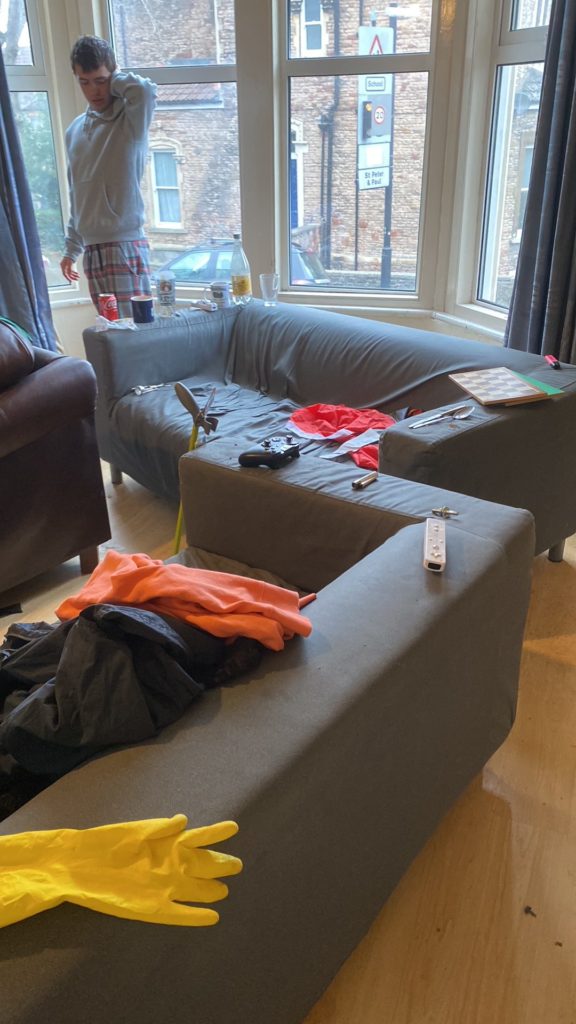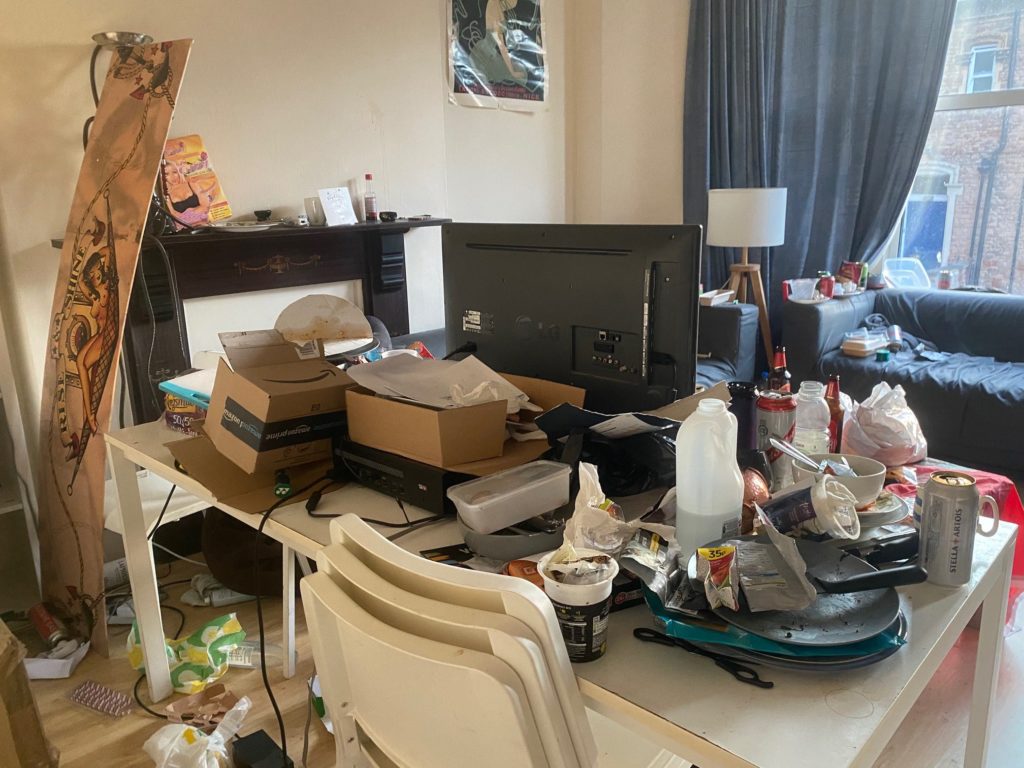
PSA: It’s illegal for your uni landlord to charge you cleaning fees
No, you don’t have to pay for a professional clean
It’s illegal for your university landlord to try and charge you cleaning fees when you move out of your student house.
Following the introduction of the Tenants Fee Act 2019, landlords who demand you pay for a professional cleaning service are breaking the law and if found guilty, can face a fine of up to £5,000.
As tenants, your responsibility is to leave your house in as clean a condition as when you moved in. For example, if your carpet wasn’t professionally cleaned before you move in, you don’t have to do it and your landlord cannot deduct this fee from your deposit.

Can my landlord deduct cleaning fees from my deposit?
The short answer is – yes.
The most important thing you can do between now and your move out date is treat your inventory list like it’s your own personal bible. Scroll back through your emails and dig up that PDF from when you moved in because it’s going to be the difference between getting your deposit back and your miserly landlord ripping you off.
All you have to do is clean the house to the description of the inventory. There should be details of marks, scratches, scuffs on items. If items are beyond repair or have gone missing, your landlord can deduct this from your deposit.
But if you moved into a house where the windows weren’t clean, the grill was sticky and the cabinets were dusty, it is not your responsibility to clean this to a level that was better than when you moved in, no matter how much your landlord or lettings agency may try and pressure you into thinking so.
Even if items have deteriorated over the course of your tenancy, this doesn’t automatically mean you are liable to being charged for this as you are protected by “fair wear and tear”.

What does ‘fair wear and tear’ mean?
You should find details of this in your tenancy agreement but in most cases it is defined as “reasonable use of the premises by the tenant and the ordinary operation of natural forces”.
Tables, chairs, sofas, carpets all wear over time and landlords cannot expect items to stay in pristine condition. Landlords have the right to take deductions from your deposit for things like stains, unnatural rips or burn marks but a worn down carpet is not something landlords should charge you for.
If you have used nails to hang up things in your room , do not immediately worry. A small amount of nails is accepted as normal wear and tear. If you had excessive amount of holes in your wall from nails, they could charge you for the cost to repair the wall.
Landlords are responsible for a lot more than you think. That includes: sinks, baths, toilets, pipes and drains. If your drain has become clogged through normal use, it is the responsibility of the landlord to repair this and they cannot charge you.
Demand to see receipts
If your landlord does charge you for damage in your house and takes this out of the deposit, they need to provide receipts. They cannot overcharge for items or make a profit on a repair and you should dispute any deduction they attempt to make if they can’t provide a receipt of the repair.
If they decide to charge you for an item that has already worn down, the deduction to your deposit should only be based on the value of the item given its expected lifespan.
For example, if you’ve ripped one of your sofas but in the inventory it says the sofa was only in a fair condition and had become aged with scuffs and marks, your landlord cannot charge you for the cost of a brand new sofa because that’s not what you inherited when you moved in.
As with any repair or cleaning service landlords try and deduct from your deposit, they need to provide pictures as evidence to justify the cost. If you really have left your house in a shocking condition, and your landlord wants to deduct £400 from your deposit to pay for a professional cleaning service, ask for pictures of the condition and receipts to justify how they have costed the price of the cleaning.

When do I get my deposit back?
Your landlord doesn’t have access to your deposit and it should be in a deposit protection scheme. This allows both you as the tenant and the landlord to dispute the condition or deductions your landlord might want to make from your deposit.
If you cannot reach an agreement between you and your landlord, the government approved Tenancy Deposit Scheme (TDS) will act as a third party to judge both sides’ claims.
After an agreement has been reached, you must receive your deposit back within 10 days.
Related articles recommended by this writer:
• Lettings agency doused tenant in petrol in campaign to evict residents, court hears
• The university cities where landlords are clawing the most profit from students
• Half of young people have been screwed over by a landlord’s illegal behaviour





















